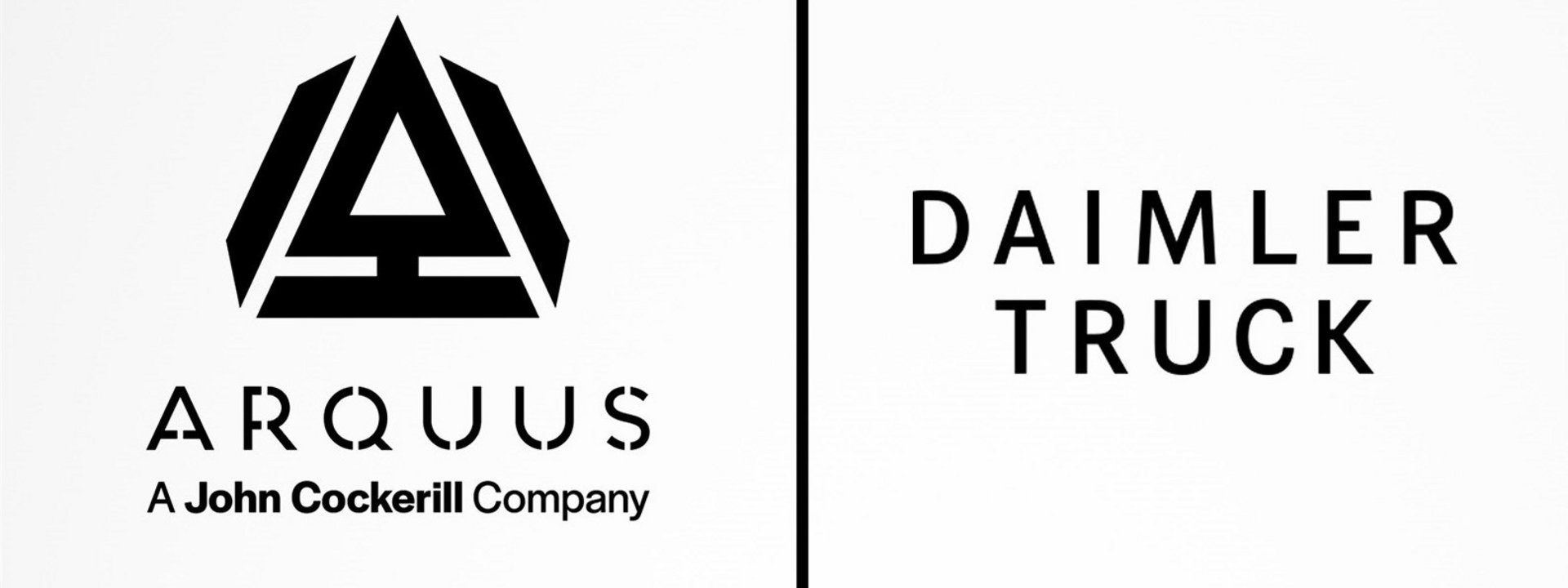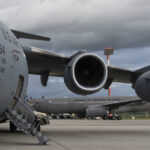THE HAGUE, Netherlands – French armored-vehicle specialist Arquus and German commercial-vehicle giant Daimler Truck have formed a new partnership that aims to replace thousands of aging logistics trucks in French service. The deal, announced this morning, brings together two firms that already supply large fleets across NATO, yet have never before joined forces on a single French program.
The cooperation agreement covers joint design, production, sales, and long-term support. Each company will keep its own brand identity. Both firms stress that no equity stake or corporate merger sits behind the arrangement. Instead, managers describe a lean teaming model. Arquus contributes its protected-mobility know-how and intimate understanding of French procurement rules. Daimler Truck adds high-volume manufacturing muscle and an export sales network that touches 170 countries.
Strategic Alliance to Modernize French Military Trucks Fleet
According to industry sources, the partners began exploratory talks late last year, after French defense planners revived plans for a wide-scale truck renewal line item that had slipped during previous budget cycles. Internal projections at the Directorate-General for Armaments (DGA) show almost 7,000 flatbed, tanker, and recovery trucks reaching end-of-life by 2032. Many date back to the 1980s. Readiness rates have fallen below 60 percent on some older models. French commanders warn that spares shortages now consume more maintenance hours than scheduled inspections.
The new Franco-German team plans to present complete vehicle families in 4×4, 6×6, and 8×8 configurations. Daimler’s Zetros and Arocs military chassis will form a base. Arquus will integrate armor kits, secure communications, and the open digital backbone already proven on the Griffon combat vehicle. Executives promise a “French sovereign cockpit” with native mission software, removing foreign encryption dependencies.
Production split keeps political optics balanced. Arquus will assemble cabs and fit protection in Garchizy and Limoges. Daimler Truck will weld chassis frames in Wörth am Rhein and mount drivetrains in Molsheim, just across the Rhine from Colmar. Both firms have union agreements that guarantee at least 500 permanent manufacturing jobs on each side of the border for ten years if the French order materializes.
Cross-Border Manufacturing and Sovereignty in Truck Production
The French Ministry of the Armed Forces notes that all mission-critical electronic modules and crypto devices will remain entirely French-sourced, meeting sovereignty guidelines set in the 2024-2030 Military Programming Law.
French-Sourced Electronics and Sovereignty Compliance
Defense officials confirm that the Army’s internal project name is PLM 26 (Poids Lourds Modernisés 2026). Budget tables published in April reserve €2.4 billion for the first tranches. Requests for information went out to industry in May. A formal tender is expected in the fourth quarter. Arquus-Daimler faces competition from MAN Military Vehicles and Iveco Defence Vehicles, but Paris wants final assembly in France, a criterion the new team believes it meets more cleanly than rivals.
Design goals highlighted in draft specifications:
- an unarmored basic payload of 7 – 16 tons, depending on wheelbase
- bolt-on composite cab armor that withstands 7.62 mm AP rounds
- STANAG-compliant mine protection for crew modules
- optional hybrid-drive kit that allows silent approach up to 30 km
- a common digital architecture that plugs into the SCORPION data network
- NATO hook-lift compatibility for containerized loads
- pre-wired counter-drone jammer mounts
Our analysis shows the hybrid option could trim fuel demand by up to 15 percent on typical training cycles. That matters because energy efficiency carries new weight in French doctrine. The Defense Energy Strategy published last year calls for cutting land-vehicle emissions 20 percent by 2030 without reducing operational tempo.
Daimler engineers have already bench-tested a 120 kW electric boost axle that mates with the firm’s OM 470 diesel. Arquus, in turn, has completed blast trials on a new “V-Shield Lite” belly pan that adds underbody security while staying under the 400 kg mass ceiling set by airborne transport rules.
Hybrid Military Truck Designs and Underbody Protection
Integration teams will merge both upgrades on two demonstrators due for rollout before the Eurosatory 2026 show.
Executives acknowledge that blending two corporate cultures presents challenges. Arquus relies on intimate ties with French program officers and follows a fast-prototype ethos adopted during the Griffon rush order in 2015. Daimler operates a strict stage-gate process more common in the commercial sector. The partners have adopted a joint steering committee that meets every fourteen days. Members rotate between Paris and Stuttgart. Standard documents list French first, German second, a diplomatic nod that insiders claim smooths early workflows.
The context that anchors the project extends beyond France. Europe’s rearmament cycle, accelerated by Russia’s war in Ukraine, has pushed heavy-truck demand to levels unseen since the Cold War. Similar modernization plans are also underway elsewhere in Europe, as seen when Romania Submits €10 Billion Military Upgrade Plan to Parliament. Fleet managers across NATO find that civilian supply chains no longer carry surplus stock.
NATO Demand Surge for Armored Logistics Trucks
Commercial haulers now stretch production capacity with e-commerce volumes. Military buyers must therefore book factory slots years ahead or risk shortages. The Arquus-Daimler plan sets aside reserved line time at Wörth through 2029, ring-fenced from civilian overflow.
Daimler Truck chief engineer Daniel Zittel says the company learned hard lessons when it tried to squeeze small defense batches between large civilian runs. “A ten-vehicle order needs as much configuration effort as 1,000 highway tractors,” he notes. “We now carve out a dedicated takt for green uniforms.” Arquus CEO Emmanuel Levacher argues that synchronized planning also supports export bids. Several Nordic countries watch the French case as a benchmark; success could open secondary markets valued at €1 billion.
Projected French tender timeline (unofficial but broadly accepted):
- Q4 2025 – publication of request for tenders
- Q2 2026 – prototype delivery for field trials
- Q4 2026 – down-selection to two finalists
- Q1 2027 – best-and-final offers
- Q3 2027 – contract signature
- 2028 – 2032 – series production and phased deliveries
No truck program moves without logistics support. Arquus will manage in-country spares warehouses in Fourchambault and Miramas. Daimler will extend its global spare-parts cloud to cover NATO stock numbers, but French depots will hold minimum two-year buffer inventory to protect against transnational delays.
Logistics Backbone and Maintenance Infrastructure for New Trucks
The partners also plan a joint driver-training center at Fontainebleau, with simulators that replicate real engine mapping and suspension response.
The venture sits alongside wider Franco-German defense collaboration. Past projects have had mixed records. The TIGER attack helicopter survived rocky development but remains a shared asset. The Main Ground Combat System battle-tank study drags under funding disputes. This French-German partnership in the defence sector reflects broader industrial efforts to unify capabilities. Observers say the truck project looks simpler: commercial commonality is high, technology risk low, and stakes large enough to matter yet not so large as to invite nationalist backlash.
Daimler will not ship full powertrains from Germany only to install them in France. Instead, partial knock-down kits move one hour across the border where French fitters complete assemblies. The scheme avoids EU customs friction and satisfies Paris job targets. French law requires at least 50 percent domestic value for strategic-supply contracts. Internal cost models show the team hovering near 62 percent French content by value in the base variant, before options.
Armor decisions loom. Arquus favors a composite sandwich panel called “ShieldOne.” Daimler prefers high-hardness steel from its German supplier. Final selection hinges on weight trade-offs. A lighter cab frees payload; a steel cab costs less. French doctrine demands modular protection that fits threat escalation. Thus, the likely path combines a steel floor pan with composite upper panels. Both companies agree on automation aids: tire pressure control, central power distribution, and open-standard data buses.
The digital core takes cues from SCORPION vehicles already in service. Truck platoons will relay logistics data over the Syracuse IV satellite constellation, enabling predictive maintenance. This demands cyber-hardened gateways. Arquus operates a cyber-secure development lab in Satory where engineers run red-team attacks against prototype architectures. The lab will now include Daimler specialists to validate code before fielding. Officials inside the DGA say this approach meets new “security-by-design” clauses found in every French ITT.
Financing remains a negotiation. The French government wants a firm-price contract with cost-plus provisions limited to inflation. Daimler usually signs price-variation deals based on raw-material indices. Metals markets remain volatile after pandemic shocks. The partners hedge by locking steel and aluminum via multi-year supply agreements. Energy costs represent the other variable. French plants benefit from nuclear electricity contracts below spot rates, partially protecting budgets. German plants rely on long-term renewable power purchase agreements.
The human factor matters, too. Arquus plans to recruit 120 vocational trainees this year, up from 70 in 2024. Many will learn welding and CNC milling for armored steel. Daimler’s Molsheim site will add 80 apprentices focused on high-voltage safety for hybrid drivetrains. Both sites will share training modules through a bilingual e-learning portal.
One concern among French unions is technology leakage. They fear that assembly know-how, once transferred, could follow trucks sold elsewhere. Management counters that export variants will use shared modules but carry customer-specific kits. French intellectual property remains protected by tight licensing clauses.
Defense planners like the proposal’s modular approach because it spreads risk. If funding shrinks, the Army can defer optional ballistic packages without halting base-vehicle flow. Conversely, if threat levels rise, armor kits install quickly at regimental depots. Everything bolts, no hot-work needed.
Potential benefits to the French Armed Forces:
- Controlled life-cycle costs through shared NATO spares pools
- Reduced fuel burn from partial electrification
- Domestic industrial workload that meets sovereignty rules
- High parts commonality across payload classes
- Faster depot-level repairs thanks to digital twins and augmented-reality manuals
Beyond France, European Defense Fund rules favor consortium bids that involve at least three member states. By adding a German lead manufacturer, the partnership can seek co-funding for export demonstrators. Early conversations with Belgium and Spain are underway, though no formal letters of intent exist.
The operational context also shapes demand. Lessons from Ukraine show that unarmored supply convoys lag behind maneuver units if they lack basic mine protection and communications. French doctrine now labels logistics columns as “combat service support elements with contact risk.” Truck armor no longer counts as luxury. This trend is echoed globally—for instance, Singapore Inducts New Protected Combat Support Vehicles in response to similar operational needs.
Lessons learned from previous programs feed into the timeline. The Griffon project suffered from software freeze slippage. To avoid repeat issues, Arquus and Daimler agreed to base the truck’s mission computer on a stable open-source kernel already approved for the French radio system CONTACT. Engineers aim for incremental software updates rather than large monolithic drops.
Sustainability concerns drive new material choices. Composite panels use recycled carbon fibers. Wiring looms incorporate bio-based insulation. Even paint systems shift to low-VOC formulas. Such features matter for public procurement audits that now grade not only cost but also environmental footprint.
Risk, however, remains. The Army wants first trucks on strength in 2028. Any schedule drift will push deliveries into a peak training cycle linked to NATO high-readiness goals. Managers respond with phased qualification. The 4×4 variant will certify first. The heavier 8×8 carries more technical risk and will trail by about six months.
Daimler also hopes to leverage its commercial after-sales network: 3,000 service points across Europe. Yet military repairs require secure bays and ammunition storage. A pilot scheme will convert ten civilian workshops near major French bases into mixed-use facilities. Success could cut average recovery time by 18 hours, according to preliminary modeling.
Earlier attempts to rationalize European truck fleets failed when armies insisted on national variants. The new proposal banks on standard core vehicles plus country-specific add-ons. It mirrors commercial car platforms where powertrains remain common, while interiors change by market.
Paris policymakers like that logic. They argue that common trucks simplify coalition operations and slash spare-parts complexity. The Scorpion Brigade already fields unified combat vehicles; matching support trucks align with that philosophy.
Critics still raise eyebrows at a binational venture winning a French tender. But supporters point to Airbus helicopters as proof that cross-border industrial chains can serve national needs when governance rules stay clear. Even so, interlocutors inside the National Assembly’s defense committee will quiz managers on any technology transfers.
One outstanding issue is data ownership. Predictive maintenance algorithms rely on fleet telemetry. Arquus insists that raw vehicle health data belong to the customer. Daimler wants anonymized data to improve future models. Lawyers draft a split arrangement: anonymized aggregates feed back to industry; mission-specific logs stay on French servers.
The cost question sits front and center. Draft price sheets show the base 4×4 truck at roughly €260,000, armor excluded. The 8×8 recovery model climbs above €450,000. These numbers undercut previous French estimates by about 8 percent, thanks in large part to Daimler scale. Inflation adjustments will apply yearly, tied to Eurostat indices.
Despite talk of tight budgets, French analysts predict green light. Logistic trucks seldom inspire press hype, yet armies cannot deploy without them. The current fleet racks up more mileage in training than combat vehicles, and parts scarcity worsens yearly.
Cost Efficiency and Operational Importance of French Military Trucks
A new flexible fleet lets Paris meet readiness goals more cheaply than ongoing band-aid repairs.
What happens next? The partners deliver marketing packages to the DGA before the Bastille Day recess. An industry day in September will let potential subcontractors view mock-ups. Formal bids lock in during November. Field trials follow at the Mourmelon test range.
In parallel, Arquus considers spinning off a services arm that handles predictive analytics for all its platforms, civilian and military. Daimler Truck explores dual-use hybrid modules that might migrate to civil heavy haulers, spreading R&D cost.
Europe’s security environment shifts quickly. Yet the fundamentals look solid: France needs new trucks, and a Franco-German pair can deliver. If schedules hold, first platoons may receive new vehicles before Paris hosts the 2028 Olympics. That would give ground forces a fresh logistics backbone for any contingency.
REFERENCE SOURCES
- https://www.arquus-defense.com/by-your-side/industrial-organization
- https://www.edrmagazine.eu/french-german-partnership-in-the-defence-sector-arquus-and-daimler-truck-are-joining-forces
- https://www.joint-forces.com/uk-news/83639-arquus-and-daimler-truck-french-german-partnership
- https://www.defensenews.com/global/europe/2025/07/03/arquus-daimler-truck-team-up-to-pitch-military-trucks-to-france/
- https://defence-industry.eu/franco-german-industry-collaboration-arquus-and-daimler-truck-team-up-for-next-gen-military-vehicles/
- https://www.tradingview.com/news/reuters.com%2C2025%3Anewsml_FWN3SZ0L5%3A0-daimler-truck-and-arquus-to-modernise-french-army-s-logistics-truck-fleet/
- https://www.marketscreener.com/quote/stock/DAIMLER-TRUCK-HOLDING-AG-130552545/news/French-German-partnership-in-the-defence-sector-ARQUUS-and-Daimler-Truck-are-joining-forces-50410814/



